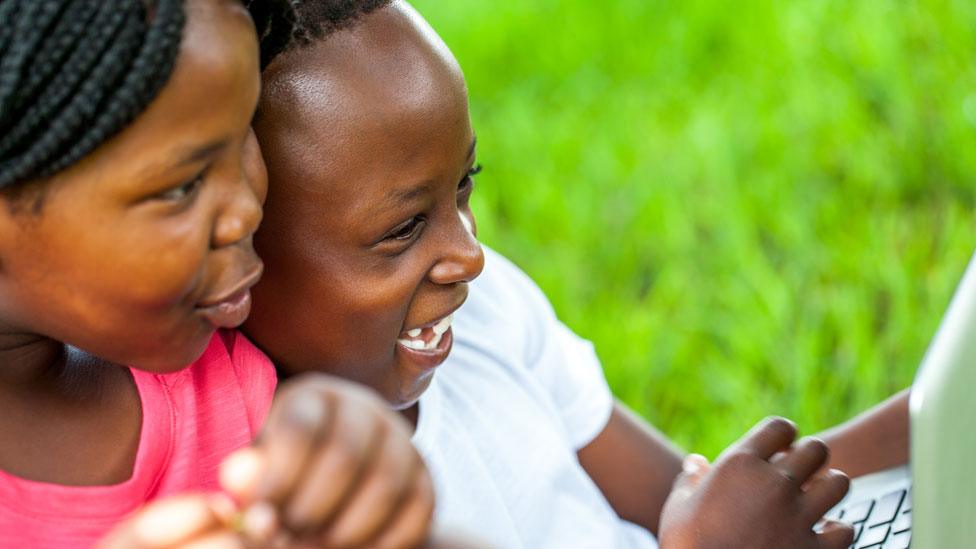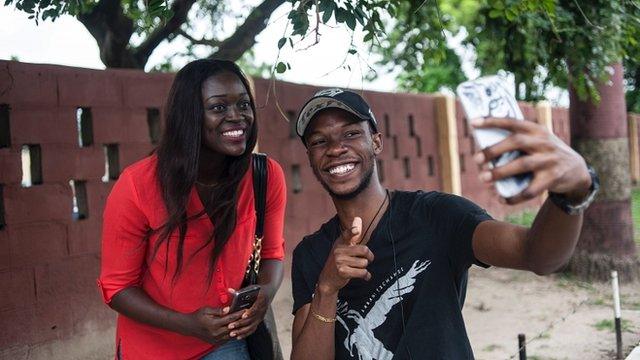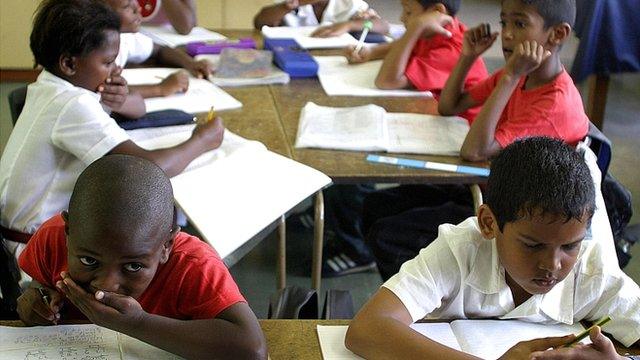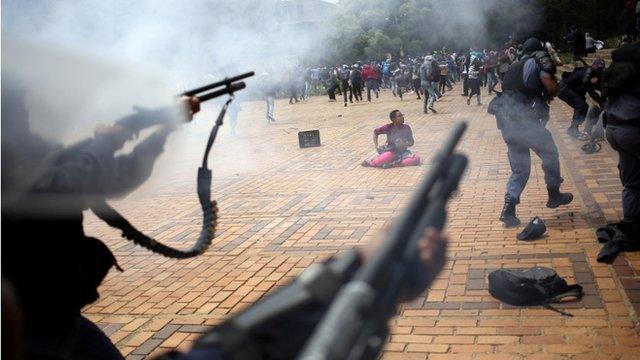South African e-learning to reach excluded
- Published

Technology is helping to meet the rising demand for education
Tablets, laptops and digital learning are increasingly being used to reach students with little or no access to education, according to an international report from the ITU/Unesco Broadband Commission.
This is especially crucial in the developing world, where Unesco says the digitilisation of learning could be a means of accelerating progress towards the Sustainable Development Goals, such as ensuring access to primary school for all children.
This process is already evident in Africa, which according to Unesco has 30 million primary-age children not attending school, over half the global total.
Yet the continent is overcoming challenges surrounding lack of internet access and electricity to become a major player in the e-learning space.
According to a recent report from Ambient Insights, Africa is the region globally where e-learning revenues are most likely to increase, with South Africa the leading market on the continent.
The University of South Africa (Unisa), which teaches through distance learning, has over 310,000 South African and international students enrolled.
And mobile operators have launched digital learning projects, such as Vodacom's "e-school" offering online educational content.
Meeting the demand
All over the country, companies of all shapes and sizes are tapping into the growth of the digital learning market.
Chris Rawlinson, founder of South African e-learning company, 42courses, says: "We are living in a world where two billion more people from mostly emerging markets are about to get online."

The universal language of the selfie on the campus of the University of Lagos in Nigeria
"There is little to no chance that we will be able to get teachers and bricks and mortar schools in the number needed to these locations fast enough.
"A part of the solution will have to be that e-learning will have to start to become a lot more accessible, and work a lot better than it currently does."
His start-up has partnerships with brands such as Ogilvy and Barclays to produce courses allowing students to learn from experts in a particular field.
Each course is designed almost like an interactive book, with text, images, videos and links for further reading.
Slow internet
South Africa's approach to e-learning has to adapt to the local conditions - such as coping with slow or expensive internet.
The Cape Town-based Rethink Education has a learning app for maths and science, presenting content in the form of text, videos, images and diagrams, with users required to interact with this content.

Will technology mean changes for the way lessons are taught?
Project manager Storme Magee says part of its popularity is that it doesn't need a fast online connection or take up too much space on mobile phones.
"The app is a web-app rather than a native app. This means that it does not require any downloading or updates. It also does not use up any phone storage.
"Therefore teens do not have to compromise on their music, photos and videos to learn," she said.
There are broader applications of e-learning than simply as a revision tool, however. South Africans are also using such platforms to develop their professional skills.
Re-inventing learning
GetSmarter is one such company in this space. The firm partners with leading universities to make online courses in a variety of subject areas.
The short, tutor-led courses run for 10 weeks, with students committing to between seven and 15 hours of study per week.

More stories from the BBC's Global education series, external looking at education from an international perspective, and how to get in touch.
You can join the debate at the BBC's Family & Education News Facebook page, external.

In 2016 the platform educated over 15,000 students from 139 countries around the world.
"We consistently achieve over 90% completion rates," said chief executive officer, Sam Paddock, who attributes this to having more engagement with students than some online courses.
He says online learning could not only reach otherwise excluded students, it could also change how lessons are taught.
"Online courses promise increased access to education. They also promise an opportunity to explore and evolve pedagogy - the art and science of teaching and learning," said Mr Paddock.
"In a digital classroom environment, everything can be measured in a way that is not feasible in a physical classroom."
More flexibility
South Africa's university system has been facing a crisis, with institutions closed as students have protested against fee rises and criticised the quality of education available to them.
E-learning could also have a part to play in higher education.

Universities in South Africa have seen waves of student protests
Hertzy Kabeya is managing director of The Student Hub, which is rolling out an online study support platform, ERAOnline, for tertiary students.
This is a web-based application for delivering electronic educational technology courses in universities, with interactive features such as the chance for students to connect with each other and with subject experts.
But Mr Kabeya believes that to make the most of digital learning schools and higher education institutions will have to be willing to adapt.
"The government is injecting significant amounts of cash in the sector to boost e-learning and help solve some of these problems," he said.
"To speed up the uptake we need institutions to be a lot more flexible to review their current teaching and learning methods.
"Injecting money and increasing budgets for e-learning can contribute to increase adoption, but institutions have to be a lot more flexible, less bureaucratic, and willing to review traditional methods," said Mr Kabeya.